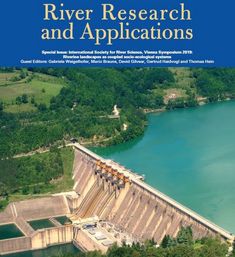Two special issues released with contributions from the Symposium “Riverine landscapes as socio-ecological systems”
In „River Research and Applications“, the special issue “International Society for River Science, Vienna Symposium 2019: Riverine landscapes as coupled socio‐ecological systems” (Volume 37, Issue 2) was released, with Gabriele Weigelhofer, Gertrud Haidvogl, Thomas Hein (all Boku), Mario Brauns (UFZ Magdeburg, DE), and David Gilvear (University of Plymouth, UK) as guest editors. Amongst others, the contributions deal with the effects of past and ongoing hydro-morphological alterations on the functioning of river systems, and with the consideration of global change and the complex interactions between society and ecosystems in the river management. Anthropic impacts on the hydro-morphology, the ecological state, and the ecosystem services provided by river systems are discussed. Furthermore, contributions deal with the social perception and acceptance of restoration measures, such as re-introduction of wood or dam openings, addressing the frequently observed discrepancy between people’s awareness of the ecological importance of such measures and their individual preferences.
The second issue was published in „Frontiers in Environmental Science” under the title „Challenges and Innovative Solutions in River Sciences“ by the guest editors Thomas Hein, Rafaela Schinegger, Gabriele Weigelhofer (all Boku), Dana M. Infante (Michigan State University, USA), and Jonas Schoelynck (University of Antwerp, BE). This issue focuses on various impacts on river systems at both regional and global scale, such as, e.g., hydro-morphological alterations, global warming), offering innovative solutions to assess and deal with these changes and their effects on the aquatic ecosystems. Interdisciplinary models, innovative techniques, and new indicators are among the presented solutions. Furthermore, long-term strategies and integrative, transdisciplinary approaches are needed in both the river management and the education to protect our river systems.
Both special issues increase the awareness of riverine landscapes as coupled socio-ecological systems. They address challenges deriving from the complex interaction between human uses and ecological demands and offer concrete solutions for an improved, modern management of such complex systems.

